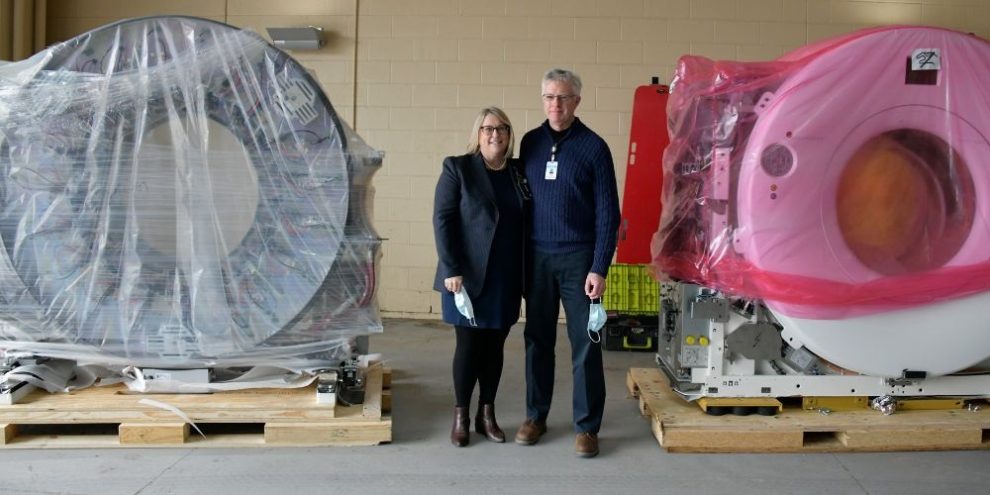
News release from Royal Victoria Regional Health Centre
Royal Victoria Regional Health Centre (RVH) received a very special delivery – the first PET- CT scanner in the region!
Early Friday morning trucks carrying the PET-CT arrived at the health centre, its final stop on a long trek from Germany.
“RVH has always focused on putting the best tools in the hands of the most skilled professionals. Today we took another significant step forward to ensure Simcoe Muskoka residents can more easily access the latest technology, so they can be diagnosed and treated faster, and ultimately on the road to recovery sooner. It is truly a day to remember,” says Gail Hunt, RVH President and CEO.
The PET-CT arrived in several pieces which will be securely stored in a temporary storage area in RVH’s Main lobby, adjacent to the Imaging Department, until mid-summer while its permanent home is being constructed. This renovation is made possible thanks to a $1 million investment from the Ontario government to renovate an already designated space within the health centre to house the new PET-CT scanner.
Ontario Health (Cancer Care Ontario) is funding the $2.7 million cost of the PET-CT. The addition of the PET-CT is also made possible by a generous $500,000 donation from valued RVH donor, Barrie Welding and Machine, as well as support from Jane and Dr. Paul Voorheis, a long-time RVH radiologist, former Imaging Medical Director, and interim Chief of Staff.
“A PET-CT is a dual imaging system that combines precise diagnostic functionality (the PET) with the anatomical images of organs (the CT scan). The PET-CT will be most often used to diagnose and monitor patients with cancer,” says Heather Gillis, RVH Director of Operations for Medical Imaging, Pathology and Laboratory Medicine. This is exciting news for the more than 600 patients each year who must travel outside Simcoe Muskoka to access this diagnostic service. We are committed to bringing care closer to home ensuring residents from across the region have access to advanced diagnostic equipment, so they do not have to travel long distances – away from their family and friends, at a time when they are most anxious and afraid.”
The PET-CT is expected to be up and running by the fall, with more than 1,000 scans anticipated to be performed in the first year the PET-CT is in operation.





